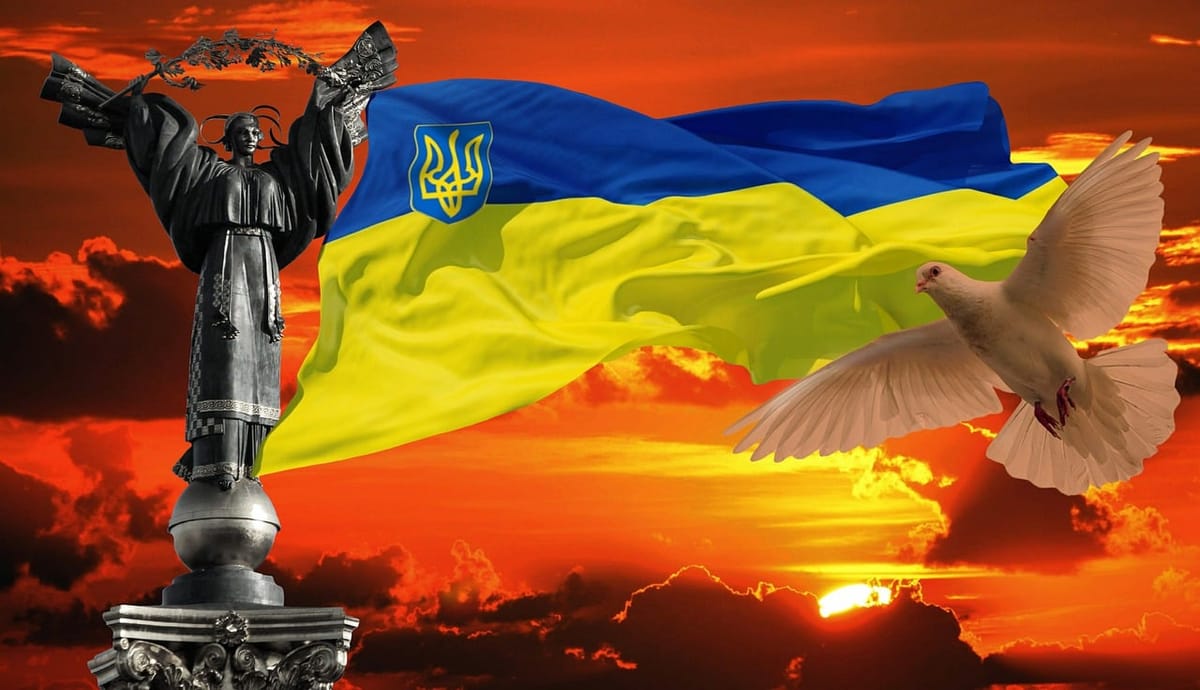What You Need to Know to Stay Ahead of the Curve
Explore the profound impacts of the Ukraine war on global trade, soaring energy costs, inflation, and the slowdown in economic growth

In today's world, the economy connects us all. Countries trade with each other, sharing goods, services, and resources. This system has expanded over the years, creating a web of economic ties globally. The arrival of new major players like China has only made these connections stronger. But now, a new challenge has emerged that is testing the strength of this global network: the conflict in Ukraine.
As nations watch the situation unfold, its ripple effects are becoming clear. The war has disrupted trade routes, creating obstacles for the exchange of products. Countries that relied on Ukraine for things like wheat are now searching for alternatives. This is not just about food; it's about the materials businesses need to make things and the energy that powers cities and factories. As a result, the cost of living is climbing. From gas to groceries, prices are on the rise, affecting households worldwide.
The war's impact doesn't stop at trade. It has led to a surge in energy costs. Countries dependent on oil and gas are feeling the pinch as prices soar. This increase is pushing up inflation, which means the money people have doesn't go as far as it used to. Everyone is feeling the strain, from families to businesses.
These issues are complex and far-reaching. The war in Ukraine is more than a regional conflict; it's a global economic event. Its effects are likely to shape the economic landscape for a long time. As we look ahead, understanding the war's influence on the world economy is crucial. It's a topic of much concern and one that requires our attention. This article will delve into these impacts and consider what the future might hold for our interconnected economies.
"Trade Turmoil: Navigating the Global Economic Ripple Effects of the Ukraine Conflict"
The world is facing a tough time. The war in Ukraine has shaken up the way countries exchange goods. This big conflict has caused major problems for global trade. When countries fight, it's not just about the battlefield. The effects spread far and wide, touching lives everywhere. Global trade is how countries buy and sell things to each other. It's like a huge market that connects the whole world. But now, this market is in trouble.

The World Trade Organization, which keeps an eye on global trade, has given worrying news. They say that trade is going to slow down a lot. In 2023, it will grow only a little, much less than the year before. Why is this happening? It's because the usual routes that ships and trucks take to move products have been blocked or changed because of the war. Also, many countries have stopped trading with Russia as a punishment for starting the war. This means that Russia can't buy or sell things like it used to, which affects everyone.
This trouble in trade doesn't just stay in one place. It spreads, touching everything from big businesses to our shopping bills. It's like when one gear in a clock stops, and then all the other gears stop too. This is what's happening with the world's money system. When trade gets hit, it's not long before the whole economy feels the pain.
Our article will explore these challenges. We'll look at how the war is changing trade and what this means for all of us. It's important to understand these changes because they affect everyone's life, from the food on our table to the jobs people have. Let's take a closer look at this critical issue.
"Energy Escalation: Understanding the Surge in Prices Amidst the Ukraine Crisis"
The crisis in Ukraine is not just a matter of politics or territory. It has triggered a sharp rise in energy costs. Across the globe, from small homes to large industries, the cost to keep the lights on and machines running has jumped. This increase is because the prices of oil and gas, the world's main fuels, have skyrocketed. Such a sudden leap in prices has not been seen in a long time.
Before the war, oil had a certain price. But now, it has more than doubled. It's a big jump. Natural gas, which heats homes and powers factories, has also become much more expensive. These are vital forms of energy that everyone needs, and now they cost a lot more. This is tough for everyone, whether it's a family trying to heat their home or a business trying to make products.
As energy prices go up, everything else does too. This is called inflation. It means that things cost more, and the money we have buys less. In many places around the world, inflation is higher than it's been for many years. This makes life harder for people. They have to spend more to get what they need.
In our article, we will dive into this issue. We'll see how the war has pushed energy prices up and how this is changing lives. We'll also explore what this means for our future. It's a big challenge, and understanding it can help us deal with it better. Let's start by looking at how the situation in Ukraine has led to these high energy costs.
"Investment in the Shadow of Conflict: The Economic Growth Slowdown Amidst the Ukraine War"
In these uncertain times, the war in Ukraine is causing more than just political tension; it's impacting economies worldwide. The fear and doubt that come with war make companies think twice about investing. They are scared to spend money on new projects when they don't know what will happen next. This cautious behavior has a big effect on how fast economies can grow.
Investment is like the fuel for economic growth. When businesses invest, they create jobs and build new things. But now, because of the war, they are holding back. They are waiting to see what happens. This means that new jobs are not being created as quickly. Big plans for the future are being put on hold. All this leads to slower growth for the world's economy.
This slow growth is not just a temporary problem. It could last for a long time. When businesses stop investing, it takes a while for things to get back to normal, even after the war ends. The longer the conflict goes on, the more cautious businesses become. This makes it hard for economies to bounce back and grow.
Our article will look closely at this issue. We'll discuss how the uncertainty caused by the war is affecting investment. We'll also talk about what slower economic growth means for everyone, from governments to families. It's important to understand these impacts because they will shape the world for years to come. With this knowledge, we can start to think about how to prepare for the future. Let's examine the current investment climate and its consequences on global economic health
Conclusion
The ongoing conflict in Ukraine is more than a regional crisis; it's a global economic turning point. The repercussions are widespread, touching every aspect of the global market. We've seen the war obstruct trade, push energy prices to new heights, and drive inflation to levels unseen in decades. Together, these have put brakes on the world's economic advancement.
To recap, trade routes have been tangled by the conflict, making the exchange of goods a complex challenge. The surge in energy costs has hit households and businesses hard, making daily operations more expensive. And with inflation climbing, the value of money is shrinking, affecting how far our earnings can go.
As we face these testing times, staying updated on the war's impacts is crucial. Knowledge is power, and in this case, it's a tool for resilience. By keeping track of credible articles and reports, we can grasp the evolving situation. Understanding the effects of the war can help us prepare and adapt to the changing economic conditions.
The future may seem uncertain, but with awareness and preparation, we can navigate these turbulent waters. Let's commit to staying informed and vigilant, ready to respond to the economic challenges posed by the war in Ukraine.




